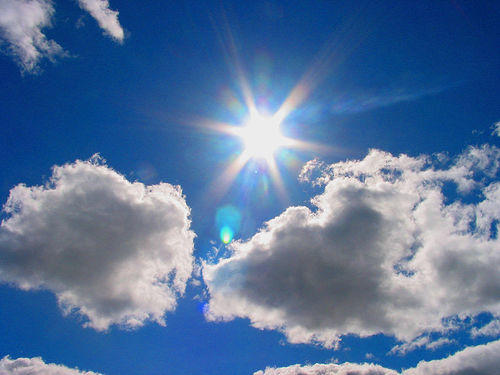
Section Branding
Header Content
Extreme Heat Hits Some Georgia Neighborhoods Harder Than Others
Primary Content

Since the 1960s, Atlanta has added an additional 22 days of the year where the temperature reached as high as 90 degrees. That's according to NOAA, the National Oceanic and Atmospheric Administration. Two researchers from Spelman College say climate change is one reason. The development of cities is another.
Na'Taki Jelks and Guanyu Huang are assistant professors of environmental and health sciences. They're leading a citywide study into which Atlanta neighborhoods get the hottest, which stay cooler and who lives where. Jelks was also named a champion of change by President Obama for her work.
Leah Fleming: So, heat islands are urban areas that experience higher temperatures due to lots of buildings, roads and other infrastructures that re-emit the sun's heat more than natural landscapes do, like green spaces in parks and forests. What is it that makes Atlanta one of the most vulnerable cities in the country?
Na'Taki Jelks: What we do know is that people who live in some of the historically redlined neighborhoods are facing more impacts because of exposure to extreme heat. These are likely the places where we don't have as much tree canopy and cover, where we don't have as many parks and green spaces that would — could be in place to help mitigate some of those impacts.
Leah Fleming: So, your group is working with the city of Atlanta, the National Weather Service, and even volunteers to create an urban heat map. Talk a little bit more about what that looks like.
Guanyu Huang: Yeah, we're actually recruiting volunteers to use their temperature sensors that are provided by NOAA to measure temperatures three times on our campaign day. Our campaign day is Sept. 4th. So, we had to have a good understanding of the high temperature, especially the variation of the temperature.
Leah Fleming: So, you say Atlanta was cooler about 20 years ago, and since then the city has erased most of its tree canopy. So, how do you suggest, Guanyu, that the city cool down as Atlanta continues to grow and urbanize?
Guanyu Huang: Vegetation. We need more trees to at least cool the temperature down a little bit in Atlanta. So, just to make our life a little easier.
Leah Fleming: So, there are some other urban heat islands that have taken on this kind of research that you all are embarking on. And then they're coming back proposing solutions like maybe whitewashing black asphalt or roof surfaces, adding more trees. Are any of these solutions that you are proposing that you think might work for Atlanta or even other communities across Georgia?
Na'Taki Jelks: Those are definitely all within the realm of possibility for our city. One other thing that I would add is that, you know, looking at ways to support energy efficiency for homes. We've also got to think about how much people have to spend in terms of their monthly incomes just to cool their homes. Unfortunately, in many lower income communities in the Atlanta area are spending a significant amount of their, you know, monthly incomes on paying for their electricity bills. And so for those folks, sometimes people might even make a decision to not run their air conditioning as much to keep the cost down, not realizing that we might be in some of those significant heat waves that could, you know, prove to be detrimental to their health in terms of heat stress or heat exhaustion as it relates to their exposure to extreme heat.


